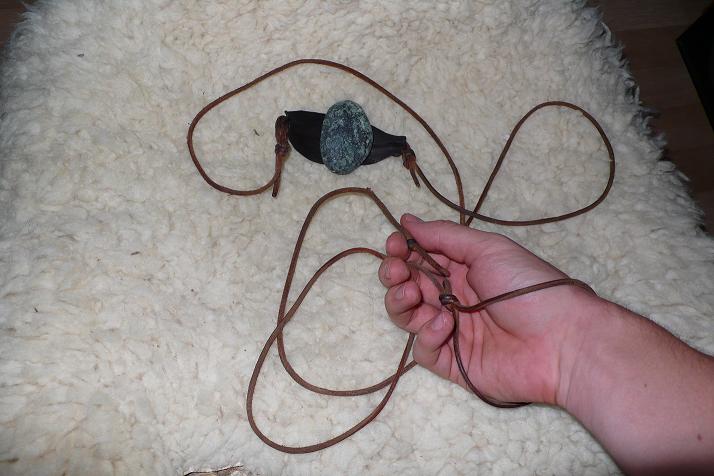Posts: 5,981 Location: Birmingham, Alabama
Tue 15 Jul, 2008 12:57 pm
See the slinger at bottom right in this image from Froissart (ca. 1480):
http://www.myArmoury.com/view.html?features/p...iers06.jpg
The ammunition, scattered around the slinger's feet, is shattered flint nodules. Flint can be knapped to any shape, of course, but this just looks like the slinger randomly broke up the nodules. Not aerodynamically ideal, but what a weapon! At distance, having a line of slingers using that would be like dumping a box of knife blades onto a crowd from the top of a building. At close range, I can easily imagine better penetration of a projectile like that vs. an .80 lead ball. A fresh flint edge will cut you so easily you won't even know you're cut until you notice the blood (those of you who have tried knapping know the experience).
We can't judge the accuracy of the depiction here, but these illustrations tend be technically accurate with regard to arms and armour. Assuming accuracy of depiction, I find it interesting that the slinger appears to have prepared his ammunition in the field and left it loose. Maybe he also has some choice ammunition in a pouch, but he seems to be selecting his stone in the heat of combat and also expects to be stationary. Or, maybe he carries his main supply of ammunition but prepares a reserve in the field as soon as he's in place, just in case he runs out. Maybe he carries preselected smooth stones for distance and breaks up flint at his feet in case the enemy closes and he needs the shock effect of a jagged projectile more than he needs accuracy or distance. Lots of interesting possibilities, but I don't see any pouch or bag straps on the slinger shown here. Could be a purse-type pouch suspended from his belt, I suppose. He seems to carry only his sling and
shield. By the way, somebody needs to do some experimental archaeology and report back to us the problems of using a shield with a sling. Loading would take some practice.
I wonder what kind of specialized gear a medieval slinger would carry. Surely he'd have a small iron hammer or hammerstone. Extra thongs and material for pouches. Fat or oil to dress the leather. What else?
Has anybody used a staff sling? Seems like those would be very powerful, but I never read much about them or see them in use in modern conflict.
